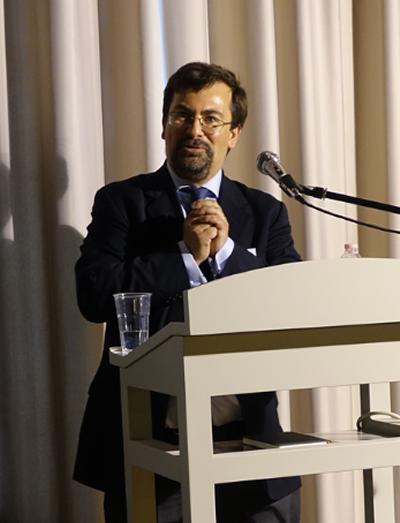Professor Peter D Clarke BA, PGCE, PhD, FRHistS
Professor of Medieval History

Peter D. Clarke is a historian of the Medieval Church, specialising in the period from c. 1150 to c. 1500.
Peter’s doctoral training was in the religious history of Later Medieval Europe, especially canon law and the papacy, and he has published extensively on these subjects since 1999. Since 2016 he has been the British member of the Board of Directors of the Stephan Kuttner Institute of Medieval Canon Law, which is responsible for the publication of proceedings of the quadrennial International Congress of Medieval Canon Law and of editions of medieval canon law collections and commentaries in the Vatican Library’s Monumenta Iuris Canonici series.
After completing his doctorate at Manchester under the late Prof. Jeffrey Denton in 1995, he spent three years in sunny Rome as a post-doctoral researcher studying medieval manuscripts and papal records in the Vatican Library and Archives. He then worked for two successive projects as a Research Associate in the Faculty of History at the University of Cambridge. The second project gave Peter more excuses to visit Rome in order to do further research in the Vatican Archives. After Cambridge, he was a Lecturer in Medieval History at the University of Wales Bangor from 2005 before moving to Southampton in 2007, where he is affiliated to History and the Centre for Medieval and Renaissance Culture.
Qualifications
- BA, Medieval Studies, University of Manchester, 1990
- PGCE, University of Hull, 1991
- PhD, University of Manchester, 1995
Appointments held
- Research Fellow, British School at Rome (1995-1998)
- Research Associate, History Faculty, University of Cambridge (1998-2004)
- Lecturer in Medieval History, Bangor University (2005-2007)
- Lecturer in Medieval History (2007-2009), Reader in Medieval History (2009-2014) and Professor of Ecclesiastical History (2014-2019), University of Southampton